The Effect of Brexit on the European Union
Brexit, the United Kingdom’s unexpected referendum vote to leave the European Union, has had far-reaching implications for both the UK and the EU. The effects of Brexit on the European Union have been both economic and political, with the potential for further ramifications for the future of the EU. The economic effects have been immediate and profound, with the Eurozone seeing a decline in growth and a decrease in trade with the UK.
The political effects have been equally significant, with the EU having to renegotiate its internal agreements and re-define its relationship with the UK. This paper will explore the economic and political effects of Brexit on the European Union, and consider the potential implications for the future of the EU.
Understanding the Impact of Brexit on the European Union
Brexit, the United Kingdom’s withdrawal from the European Union, has created a unique situation that has had major implications for both the UK and the EU. This article will discuss the potential implications of Brexit on the European Union, including economic, political, and social effects.
Economically, Brexit has caused a large shock to the EU economy. With the UK no longer part of the EU, the UK’s contributions to the EU budget will be greatly reduced. This could lead to higher taxes for EU citizens, as well as a decrease in public services. Additionally, the UK’s withdrawal from the single market and customs union means that businesses will have to pay tariffs when trading with the UK. This could lead to higher prices for consumers and increased costs for businesses.
Politically, the UK’s withdrawal means that it no longer has a say in the decisions made by the EU. This could lead to a more unified and stronger EU, as the UK’s decision to leave was largely due to its disagreement with certain EU policies. On the other hand, it could also lead to political instability as the UK is no longer part of the EU and is now an external actor.
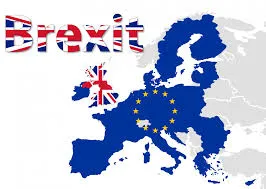
Socially, Brexit has created a divide between the UK and the EU, as well as within the EU itself. With the UK no longer part of the EU, there is less unity between the two regions and there are fears that the UK’s departure could lead to other countries leaving the EU. This could lead to further divisions within the EU and a weakening of the union as a whole.
It has had a significant impact on the European Union, both economically, politically, and socially. The economic implications have been felt across the EU, with the UK’s withdrawal from the single market and customs union leading to higher costs for businesses and consumers. Politically, the UK’s withdrawal has left the EU without one of its major members and could lead to further divisions within the union. Finally, socially, Brexit has created a divide between the UK and the EU, as well as within the EU itself. As such, it is clear that Brexit will continue to have a major impact on the European Union for some time to come.
Analyzing the Economic Effects of Brexit on the EU
Brexit, the withdrawal of the United Kingdom from the European Union, has had a significant economic impact on both the UK and the rest of the EU. This article examines the economic effects of Brexit on the EU, focusing on the issues of trade, investment, and labor.
Trade between the UK and the EU is likely to be affected by Brexit, as the UK will no longer be part of the EU’s single market. This means that the UK will no longer benefit from the free trade arrangements that come with being a member of the single market. The UK will also need to negotiate new trade agreements with the EU and other countries, which may take time and could be costly.
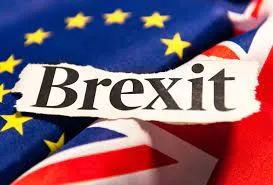
The UK’s withdrawal from the EU could also have a negative impact on investment in the EU. The UK has been a major source of foreign direct investment for the EU, and the withdrawal of the UK could reduce investment in the EU. This could have a negative effect on economic growth in the EU and could lead to job losses.
Finally, Brexit could have an impact on the labor market in the EU. The UK has been a major source of labor for the EU, and the withdrawal of the UK could mean fewer workers in the EU. This could lead to a shortage of labor in some sectors, and could lead to higher wages in those sectors.
Overall, Brexit is likely to have a significant economic impact on the EU. It remains to be seen how the EU will respond to the economic challenges posed by Brexit, but it is clear that the UK’s withdrawal will have a significant impact on the EU’s economy.
Examining the Social Consequences of Brexit on the European Union
The United Kingdom’s decision to leave the European Union has had far-reaching social consequences throughout the continent. The result of the Brexit referendum has resulted in a period of economic and political uncertainty for both the UK and the remaining EU countries. On a social level, there have been a number of changes that have had an impact on the citizens of the EU.
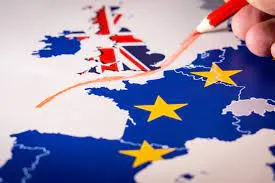
The most immediate effect was the rise of anti-EU sentiment within the UK and the other EU countries. This has led to increased hostility and mistrust among different countries, making it difficult for citizens to feel a sense of unity within the EU. The UK’s withdrawal from the EU may also lead to decreased freedom of movement for citizens of the EU. Without the UK in the EU, there may be an increase in restrictions on travel and work visas, making it difficult for people to move from one country to another.
The UK’s departure from the EU has also been accompanied by a rise in xenophobic rhetoric throughout Europe. This has resulted in increased discrimination against those who are perceived to be different, such as immigrants or refugees. This has had a negative impact on social cohesion within the EU, as it has created an atmosphere of fear and tension between different members of society.
In addition to these social consequences, the UK’s exit from the EU has also had an economic impact. The UK’s decision to leave the EU has caused economic disruption, as businesses have had to adjust to the new reality of a Brexit economy. This has had a knock-on effect, with many countries in the EU seeing their economies slow down as a result of the instability created by the UK’s departure.
Overall, the social consequences of Brexit are far-reaching and have had a significant impact on the citizens of the European Union. The rise in anti-EU sentiment, the restriction of freedom of movement, and the increased xenophobia have all had a negative effect on social cohesion within the EU. In addition, the economic disruption caused by Brexit has had a knock-on effect on the economies of the EU countries. As a result, the social consequences of Brexit are likely to be felt for many years to come.
Assessing the Political Fallout of Brexit on the EU
The United Kingdom’s decision to leave the European Union (EU) has had significant political repercussions throughout the bloc. As the first nation to withdraw from the EU, Brexit has raised questions about the future of the union and its ability to further its goals of promoting peace and economic unity.

The political fallout of Brexit has been vast and far-reaching. In the immediate aftermath of the referendum, the EU was thrown into a period of intense political and economic uncertainty as leaders across the continent scrambled to develop a plan to move forward. This period has been marked by acrimonious negotiations between the UK and the EU, as well as a rise in anti-EU sentiment in Europe.
At the same time, Brexit has presented an opportunity for the EU to strengthen its unity and resolve in the face of adversity. The EU has responded to the uncertainty of Brexit by reaffirming its commitment to the principles of free movement, the single market, and open borders. This has been seen in the recently negotiated Brexit deal, which ensures that the rights of EU citizens in the UK are protected and that the UK will remain part of the EU’s customs union.
Brexit has also had an impact on the wider global political landscape. As the UK withdraws from the EU, it may create a power vacuum that could be filled by other international actors, such as Russia or China. This could lead to a shift in global power dynamics as these countries seek to increase their influence in Europe.
Overall, the political fallout of Brexit on the EU is still unfolding. While there is still uncertainty around the future of the union, the EU has responded with determination and resilience, and is determined to continue to promote peace and economic unity throughout Europe.
Exploring the Legal and Regulatory Changes of Brexit on the European Union
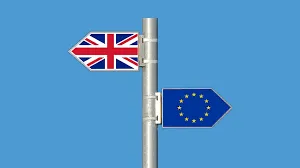
Brexit is a term used to refer to the United Kingdom’s (UK) withdrawal from the European Union (EU). The Brexit process was triggered on June 23rd, 2016, when the UK voted to leave the EU in a referendum. This event marked the beginning of a complex and multi-faceted transition period, during which the UK and the EU were to negotiate the terms of the UK’s withdrawal.
Since the result of the referendum, the UK and the EU have been negotiating a range of legal and regulatory changes to ensure that the UK’s departure from the EU is orderly and minimizes disruption for citizens, businesses, and other stakeholders. This article will explore some of the legal and regulatory changes that Brexit will bring about in the EU.
One of the most significant legal changes that Brexit will bring about is the repeal of the European Communities Act 1972 (ECA) and the introduction of the European Union (Withdrawal) Act 2018 (EUWA). The ECA was the primary piece of legislation that gave effect to the UK’s membership of the EU. The EUWA will repeal the ECA and replace it with a new body of law that will provide a framework for the UK’s withdrawal from the EU. This includes the repeal of all EU laws that have been implemented in the UK and the transfer of many EU laws into UK law.
Another major legal change that Brexit will bring about is the repeal of the jurisdiction of the European Court of Justice (ECJ). The ECJ is the highest court in the EU and its rulings are binding on all EU member states. With the UK’s departure from the EU, the jurisdiction of the ECJ will no longer apply to the UK and UK courts will become the highest court in the UK. This will mean that all disputes between EU member states and the UK will now have to be resolved in UK courts.
In addition to the legal changes, Brexit will also bring about a range of regulatory changes. For example, the UK will no longer be subject to the EU’s Common Agricultural Policy (CAP) and will instead have to develop its own agricultural policy. The UK will also no longer be subject to the EU’s competition laws and will instead have to develop its own competition regime. Similarly, the UK will no longer be part of the EU’s environmental regulation and will instead have to develop its own regulatory framework for environmental protection.
Overall, Brexit will bring about a range of legal and regulatory changes in the EU. These changes will have implications for citizens, businesses, and other stakeholders. It is therefore important that all stakeholders understand the implications of these changes and ensure that they are prepared for the changes that Brexit will bring about.
Investigating the Effects of Brexit on European Citizens
The United Kingdom’s decision to leave the European Union, otherwise known as Brexit, has had a significant impact on European citizens. As the future of the EU and the UK remain uncertain, it is important to examine the current effects of Brexit on citizens in the EU.

The economic consequences of Brexit are widespread and far-reaching. The UK’s departure from the EU has caused the cost of goods to increase, due to the introduction of new tariffs on imports and exports. This has resulted in a decrease in purchasing power for many European citizens, particularly those living in areas that depend heavily on trade with the UK.
The political uncertainty surrounding Brexit has also had a negative impact on citizens in the EU. The lack of clarity regarding the terms of the UK’s departure has led to a sense of unease and insecurity among many European citizens, who feel that their future in the EU is uncertain. This has been particularly evident in border areas, such as Ireland and Northern Ireland, where the relationship between the two countries has been strained since the Brexit vote.
The social impact of Brexit is also significant. The UK’s departure from the EU has led to a decrease in freedom of movement for citizens in the EU, as the UK will no longer be part of the Schengen Area. This has resulted in increased restrictions on travel and has made it more difficult for citizens to visit family and friends in the UK.
In conclusion, the effects of Brexit on European citizens are far-reaching and complex. The economic, political, and social implications of Brexit have had a significant impact on citizens in the EU, resulting in decreased purchasing power, increased uncertainty, and decreased freedom of movement. As the future of the UK and the EU remains uncertain, it is important to continue to monitor and investigate the effects of Brexit on European citizens.
Examining the Long-term Impact of Brexit on the European Union
Brexit is a term that has been in the news for years now, and it refers to the United Kingdom’s departure from the European Union. This withdrawal has been a source of great uncertainty, and it is impossible to predict how it will ultimately affect the EU. While some of the immediate economic and political effects are clear, the long-term impact of Brexit is less certain. This article will examine the potential long-term impact of Brexit on the European Union.
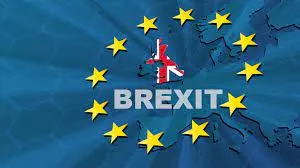
One way in which Brexit could affect the EU is in terms of economic growth. The UK is one of the largest economies in the EU, and its departure could mean a decline in overall economic growth for the union. The UK is currently the second-largest contributor to the EU budget, and its exit could lead to a decrease in funding for EU programs. This could lead to a decrease in investment in research and development, as well as in infrastructure. It could also lead to a decrease in the number of jobs available in the EU.
Brexit could also have a long-term impact on the EU’s political stability. The UK has long been considered a major power in the EU, and its departure could lead to a decrease in the influence of the union. This could lead to a weakening of the EU’s negotiating power in international trade agreements, as well as a decrease in its ability to respond to global crises. This could lead to a decrease in the overall security of the EU.
The UK’s withdrawal could also have an effect on the EU’s immigration policies. Currently, the UK is a major source of immigration for the EU, and its departure could lead to a decrease in the number of immigrants entering the union. This could lead to a decrease in the labor force and a decrease in the overall economic growth of the EU.
Finally, Brexit could also have a long-term impact on the EU’s relationship with other countries. The UK was a major force in the European Union, and its withdrawal could lead to a decrease in the influence of the union in international affairs. This could lead to a decrease in the influence of the EU in the international arena, as well as a decrease in its ability to negotiate trade deals with other countries.
Ultimately, the long-term impact of Brexit on the European Union is difficult to predict. While some of the immediate economic and political effects are clear, the full impact of Brexit on the EU will likely take years to assess. It is clear, however, that Brexit will have a lasting impact on the EU, and that its effects will reverberate through the union for years to come.
Looking Ahead: Predicting the Future of the European Union Post-Brexit

The future of the European Union (EU) post-Brexit is uncertain. The effects of the UK’s departure from the EU in 2020 will be felt for years to come, and the internal dynamics of the EU are likely to be dramatically altered. As the EU seeks to respond to the UK’s departure, it faces a range of challenges and opportunities that will shape the future of the organization in the coming years.
The most pressing issue facing the EU is the need to develop an appropriate response to Brexit. This will involve ensuring that the economic and political interests of the remaining EU member states are protected, while also seeking to ensure that the UK is treated fairly. In order to do this, the EU will need to develop a comprehensive strategy that balances the interests of both the UK and the EU. This strategy will need to take into account the political, economic, and social implications of Brexit, and will require a carefully crafted negotiation process between the two sides.
The EU will also need to focus on other areas of reform in order to ensure its long-term stability and success. This will involve deepening the internal integration of the EU through measures such as further harmonization of policies and the strengthening of institutions. This will be a difficult process, as the EU has struggled to reach consensus on such issues in the past. However, it is essential if the EU is to remain a powerful and influential organization in the global economy.
In addition, the EU must address the challenges posed by a changing global landscape. This will involve responding to the rise of populism and nationalism, as well as the changing nature of global security and the rise of digital technologies. The EU will need to develop an effective strategy to address these issues, while also ensuring that its member states remain united and committed to its core values.
Finally, the EU must ensure that it remains an attractive destination for foreign investment. This will involve creating an environment that is attractive to businesses and entrepreneurs, while also ensuring that the EU’s regulatory and legal frameworks remain competitive. This will be a difficult balancing act, and the EU must ensure that it remains open to foreign investment while also maintaining its commitment to protecting the interests of its citizens.
The future of the European Union post-Brexit is uncertain. However, by focusing on the issues outlined above, the EU is likely to remain a powerful and influential force in the global economy for many years to come.
The effects of Brexit on the European Union are far-reaching and will continue to be felt for years to come. The loss of the UK’s economic and political contributions to the EU, as well as the potential for future uncertainty, will likely have a major impact on the EU’s economy, politics, and trade. It remains to be seen how the EU will respond to this challenge, and what the new relationship between the UK and the EU will look like. At the same time, the EU must also focus on addressing other pressing issues, such as the migration crisis and climate change. Brexit is a reminder of the importance of the EU in maintaining a unified and secure Europe.